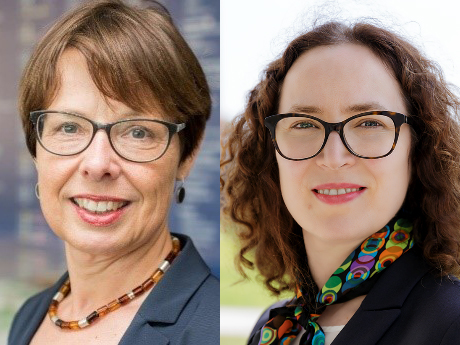We must not lose sight of the „old“ infectious agents, even if the Corona pandemic is currently in the focus of attention. Members of the Mycobacterium tuberculosis Complex and Staphylococcus aureus, for example, are daily claiming victims, and the antibiotic resistance crisis is aggravating the problem. These pathogens and their hosts have adapted very well to each other through co-evolution, and the immune system relies on numerous mechanisms to sense, interact and mostly maintain an equilibrium with the pathogens over long periods of time. Mostly – not always, unfortunately. These fascinating mechanisms and their role in health and disease are the topic of our joint presentation.
Barbara M. Bröker is Professor and Head of the Institute of Immunology at University Medicine Greifswald, Germany. Having studied medicine and philosophy at the universities of Münster (Germany), Vienna (Austria) and Bristol (UK), Barbara Bröker moved to the University College and Middlesex Medical School in London (UK) as a postdoc to study autoimmune diseases and become an immunologist. She then joined a Max Planck Research Group in Erlangen and later the Bernhard Nocht Institute for Tropical Medicine in Hamburg before moving to Greifswald in 2000.
Anca Dorhoi is Director of the Institute of Immunology at the Friedrich-Loeffler-
Institut (FLI), Greifswald-Isle of Riems, and Professor of Immunology at the Faculty of Mathematics and Natural Sciences, University of Greifswald, Germany. She studied veterinary medicine in Cluj-Napoca (RO), specialized in infectious diseases also in Lisbon (PT) and moved to the Max Planck Institute for Infection Biology, Berlin (MPIIB) as a postdoc to study immunity to bacterial pathogens. Anca Dorhoi led a Minerva Group at the MPIIB before joining the FLI in 2017.
Moderation: Dr. Christian Suhm
-------
Organizational information on the digital lecture
The Alfried Krupp Wissenschaftskolleg is offering this event live as a zoom meeting, in which viewers can also take part in the subsequent discussion with video contributions.
- We would be delighted if you gave your real name when dialing into Zoom. Of course, you can also take part in the event under a pseudonym.
- A list of all participants is available to all those involved during the entire event.
- During the lecture, the microphones of the audience are all automatically muted so as not to generate any disturbing background noise. You can turn on the audience's camera during the lecture.
- In the discussion that follows, requests to speak or questions can be displayed using the "Raise hand" function. You can find these - depending on the device - under the button "Participant", "More" or "Reactions" in Zoom. You can also lower your hand again if you want to withdraw the question.
- The moderator keeps a speech list and gives the floor in the order of the messages. If the moderator asks you to bring your question or request to speak, the user interface will ask you to turn on your microphone. If you have not already done so, you are welcome to turn on your camera. This is particularly desirable when presenting longer requests to speak so that the presenter can also see who is asking the question or who is making the comment.
- Of course, you also have the option of asking your questions in writing in the chat.
Recording of the digital lecture
The digital lecture will be recorded so that it can be used in the college's media library. Only the speaker, his / her presentation and the moderator can be heard or seen in the recording. Video, audio or chat contributions are not recorded. A “REC” symbol at the edge of the screen informs the participants about the current recording.

